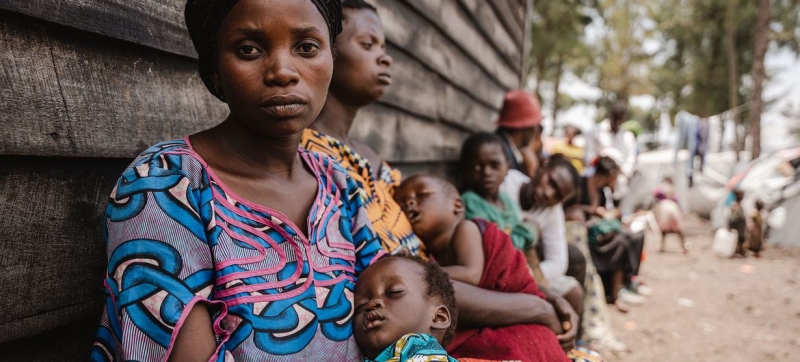
A mother and her child wait for an appointment for malnutrition screening in DR Congo. UN agencies join forces to prevent child deaths from malnutrition Humanitarian aid
In emergencies, the risk of wasting is particularly high, leading to increased mortality among children and irreversible consequences for their development. Three UN agencies have announced a joint programme to support millions of children and women with evidence-based initiatives.
The United Nations Children’s Fund (UNICEF), the World Food Programme (WFP) and the World Health Organization (WHO) will join forces to conduct research and take action to prevent, detect and respond to malnutrition in the context of humanitarian crises. The joint initiative aims to prevent and treat childhood wasting and find long-term solutions for millions of women and children.
Building on the Global Action Plan on Childhood Wasting, the partners will work in three key areas: supporting governments in implementing national roadmaps, collecting data and building the evidence base, and helping governments integrate the 2023 WHO Guidelines into policy. The International Food Policy Research Institute is participating in the project as a partner.
The initiative complements a broader joint approach by UNICEF and WFP to develop integrated programmes to prevent, detect and respond to child wasting in 15 countries between 2024 and 2026.
“This partnership represents a step forward in our global efforts to reduce child malnutrition and related deaths in humanitarian settings,” said UNICEF Child Nutrition and Development Director Victor Aguayo. “With the concerted action of the three UN agencies, we will protect more vulnerable children and women from the devastating impact of malnutrition in humanitarian crises.”
More than $250 million in funding was provided by UK, Ireland and the USA.
“These funds will help build the evidence base that will enable us to take decisive action to protect women and young children, particularly in fragile settings, from the devastating consequences of malnutrition,” said Abigail Perry, Director of Nutrition at the World Food Programme.
According to Francesco Branca, Director of the WHO Department of Nutrition for Health and Development, partnerships like these help develop more effective solutions to address the underlying drivers of malnutrition and to engage all relevant sectors, including health, water, sanitation and hygiene, agriculture and social protection.
